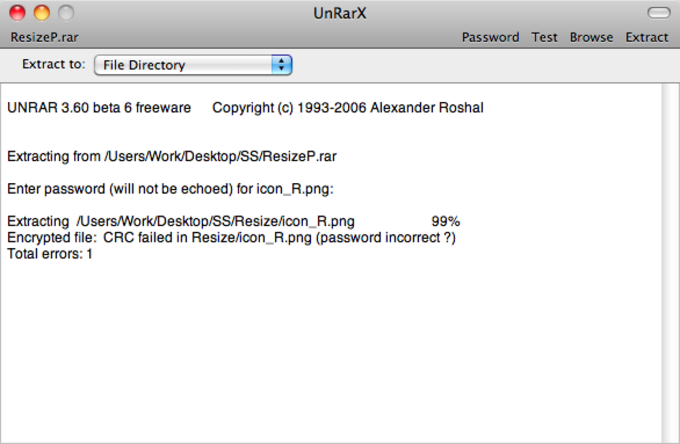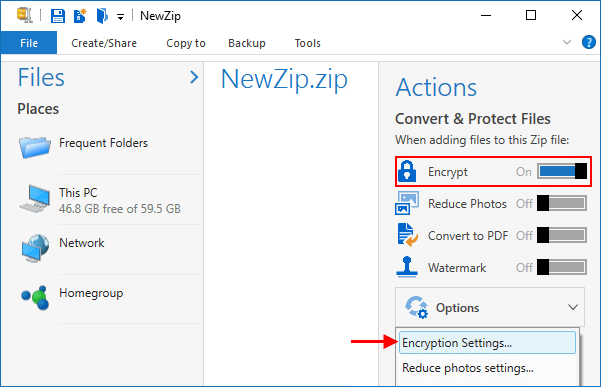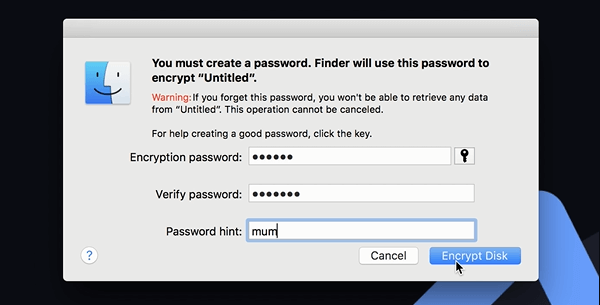

- WINZIP FOR MAC ENCRYPTION PASSWORD HOW TO
- WINZIP FOR MAC ENCRYPTION PASSWORD ZIP FILE
- WINZIP FOR MAC ENCRYPTION PASSWORD ARCHIVE
- WINZIP FOR MAC ENCRYPTION PASSWORD PASSWORD
But it is true that there are so many alternatives to 7-Zip on Mac that can work as outstandingly as 7-Zip. So, if there is any saying about 7-Zip for Mac, it is not true. But unfortunately, there is no Mac version of 7-Zip. Also, there is a version designed for Linux, Ubuntu and other systems-the p7zip. If encrypting zip files is something you find yourself doing regularly, you're better off using a third-party app.As you may have visited the official website of 7-Zip, this program can work on Windows 10/8/7/ Vista / XP / 2016 / 2012 / 2008 / 2003 / 2000 / NT. Alternatively, you can compress and password-protect files using third-party utilities such as WinZip.
WINZIP FOR MAC ENCRYPTION PASSWORD ZIP FILE
You should be able to see the password-protected zip file on the set directory. Note that you won't see any characters on the command line when typing your password.Īnd that's it you've created an encrypted zip file or folder.
WINZIP FOR MAC ENCRYPTION PASSWORD PASSWORD
Type the password you want to use and hit Return twice.

At this point, assuming everything's done right, you'll be prompted to enter and verify the password. Add a space and drag the file/folder to the Terminal window, and press Return. Enter the command 'zip -er FILENAME.zip' without the quotes and replace FILENAME with what you want to name your encrypted zip file. Type' cd downloads' if the file you're looking to compress is saved in the Downloads folder. Type 'cd' and the location of the file or folder that you want to compress and encrypt. The next step is to set the destination of the files that you want to zip and password-protect. You can also press Cmd + Space bar to activate Spotlight search and type 'Terminal.' Navigate to Finder > Utilities and click on the Terminal app.
WINZIP FOR MAC ENCRYPTION PASSWORD HOW TO
No need to worry though, here's a step-by-step guide on how to use Terminal to password-protect compressed files on your Mac. Using Terminal can be pretty intimidating, especially if you have not used the app before. You have to enter the commands manually into your computer via Terminal. You can encrypt compressed files on your Mac without an additional program or application, but there's a caveat.

When it comes to encrypting compressed files on MacOS, there are two ways to go about it. While zipping and unzipping files is incredibly easy, creating an encrypted zip file takes a little more effort.
WINZIP FOR MAC ENCRYPTION PASSWORD ARCHIVE
Encrypting a zip file locks down the archive so that only people with the password can view its contents. You want to encrypt a zip file if you don't want just anyone to open it. But you may have a group of files that you want to zip and encrypt for business or financial reasons, which is where things get a bit complicated.Īn encrypted zip file is simply a compressed file that's also password protected. It's a fairly simple process all you have to do is select the files you want to bundle and right-click. Zipping offers a quick and easy way to compress files and folders down to a much smaller size without losing any quality. Are you struggling to password-protect your zip file on your Mac? Here's everything you need to know about encrypting zip files on a Mac. Of course, encrypting zip files on Mac can be pretty confusing if you've never done it before.

Fortunately, MacOS lets you create password-protected compressed files. If you are compressing files that contain sensitive information, you might want to go a step further to protect the data inside your files from prying eyes. Zipping or compressing your files helps you save space on your hard drive and makes it easy to share documents and folders via file-sharing services such as Google Drive and Dropbox.


 0 kommentar(er)
0 kommentar(er)
